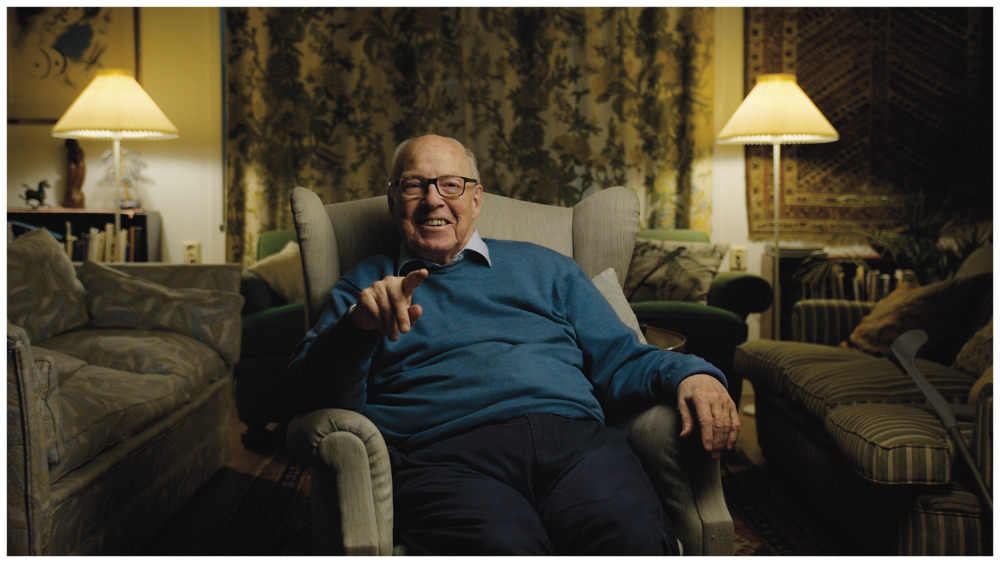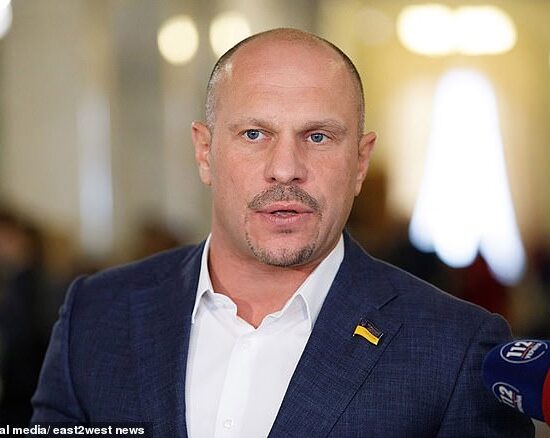
Czech-Swedish filmmaker Greta Stocklassa was only eight when the War on Terror began in 2001. In the years that followed, fellow Swede and former UN weapons inspector, Hans Blix, became a central figure in the investigation into weapons of mass destruction in Iraq. In her documentary “Blix Not Bombs,” Stocklassa interviews Blix, now 94 years old, about the period running up to the U.S.-led invasion of Iraq 20 years ago.
In the docu, Blix describes his meetings with George W. Bush and Tony Blair, his frustration when Colin Powell gave his pivotal speech in the UN Security Council, and his feeling of emptiness when the U.S. started the invasion, despite his reports that his team had found no weapons of mass destruction in Iraq.
Blix also argues that there was a butterfly effect that the Iraq War triggered: the invasion resulted in the overthrow of the Iraqi regime, and the breakup of the Iraqi army, which led to the rise of ISIS, and the ensuing immigration crisis in Europe. As a reaction to that, a wave of far right populists such as Marie Le Pen, Geert Wilders and others arose, destabilizing governments all around Europe.
“The film became a dialogue between generations,” says “Blix Not Bombs” producer Radovan Síbrt. “Greta is trying to figure out how to live as responsibly as possible in the world Hans has co-created and is slowly leaving. She tries to understand the limitations of diplomacy, professional duty, personal responsibilities, and the fact that there is not always a simple answer to everything.
“Blix Not Bombs,” which had its world premiere at Copenhagen documentary festival CPH:DOX, will screen at Hot Docs in the Special Presentations program.
Variety spoke with Stocklassa and Síbrt about why they wanted to make “Blix Not Bombs,” production challenges and the film’s biggest takeaways.
Variety: Did you approach Hans Blix about making this docu or did he reach out to you?
Stocklassa: I approached Hans almost four years ago, knowing he lived in Stockholm and that he was still pretty active. I wasn’t sure if I was going to make a film or what the focus of it would be, but I was intrigued by the fact that here is a man, who was part of history, yet remains not very known, at least for my generation, and is most famous for being ridiculed in the satirical cartoon “Team America.” When I reached out to him, I was surprised by his openness and friendliness, he immediately invited me to his home for tea and we met a couple of times before we decided to start filming.
What drove you to make this film?
Síbrt: Greta and I had slightly different motivations. For me, Hans is a character I knew from my adolescence. Before the invasion of Iraq, we watched the news every night and his name kept coming up. At that time, the official mood in the Czech Republic was clear: We must attack Iraq. We were freshly part of the Western world. We had joined NATO the year before, and the whole society was clearly in tune: Whatever the U.S. leaders say, we must be in agreement. It doesn’t matter if it’s a lie. So, Blix was also seen as a negative figure because he was saying something that didn’t quite fit the official discourse. So, it was extremely interesting to tell the story of a man who was touching on great history that we only knew from the television screen. Especially since no one who loudly supported the war ever publicly apologized.
Stocklassa: During the making of this film, the urgency of making it grew. The topics we had talked about in the abstract or on the example of the Iraq war – war, peace, diplomacy, future – had become very specific and urgent with the war in Ukraine. The Iraq war became a case study in what happens, when you don’t care about the facts (or create your own), don’t respect the agreements of multilateral organizations and humiliate your opponents. A lot of it applies even today.
What was the most challenging aspect of making the doc?
Stocklassa: The most challenging part was definitely in the editing room. We needed a lot of archives to tell the story and find a rhythm that wouldn’t make it into a boring history lesson. In general, finding the balance between the behind-the-scenes of Hans’ involvement in Iraq and all his other work, like Chernobyl, and all the other universal topics which are important both for him and for me, such as ethics, diplomacy, and future, was hard and a lot of darlings were killed.
Síbrt: The film was full of challenges from the very beginning. After the first short shoot, Covid-19 started, so most of the film was shot in conditions where it was impossible to travel. Access to Hans was extremely difficult. At one point he stopped communicating completely because he was hospitalized. Because of his age, we were constantly in a situation where we didn’t know whether we would finish the film. Because of that situation, we had a problem getting financing for the film.
What are you hoping audiences think about after seeing “Blix Not Bombs”?
Stocklassa: I would like (audiences) to get acquainted with Hans Blix and his values, because I think peace makers should get more spotlight than war heroes. Regardless of if they agree with Hans or not, I hope audiences think about what their personal role is in making the world a better place or maybe (the film) just incites a love for birds and nature like Hans has… Hopefully it can do both.
Síbrt: The film clearly shows how fundamental decisions are made by people who don’t care about the truth, who have other interests and are willing to do anything for them. They don’t care what the consequences of their actions will be. The effects of the war in Iraq still affect the lives of millions of people, including all of us. That is why we need to ask questions like Greta’s much earlier. Not after we see the impact around us.













